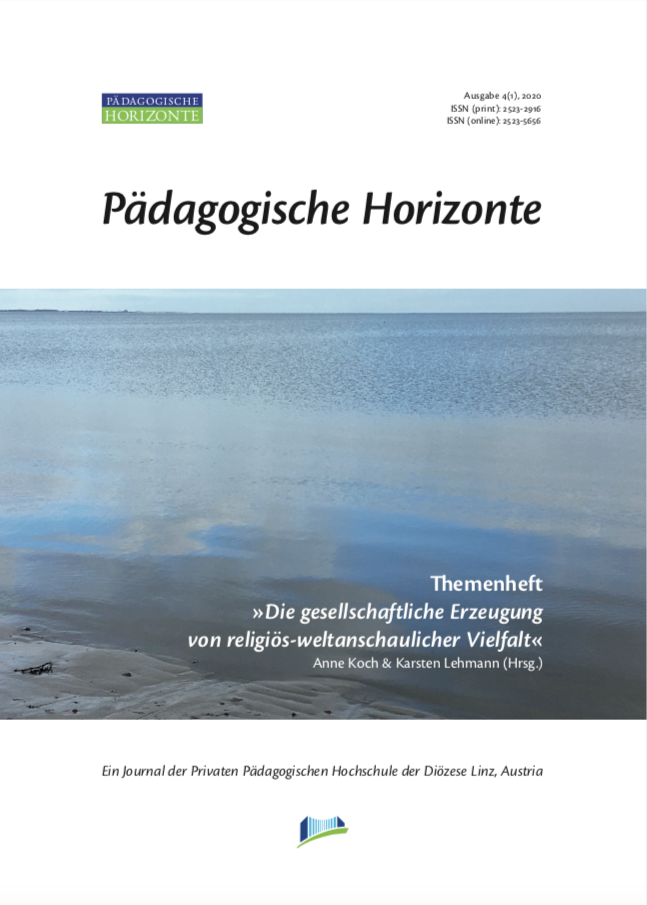Scham im Kontext religiöser Diversität und interreligiöser Bildung
Keywords:
Scham, Diskriminierung, Interreligiosität, DiversitätAbstract
The article discusses the relevance of shame in the context of religious diversity and interreligious education. The first part of the paper deals with basic aspects of shame. It shows how shame affects us humans and which neurological mechanisms are activated when shame is experienced. From a sociological point of view different forms of shame will be presented in order to analyze its impact in the context of religious diversity and interreligious education. Adressing the function of shame in social contexts it is shown that beshaming somoenoe can be understood as a strategy of constructing social hierarchy. The second part of the article thematizes the particular power of shame in context of religious diversity and interreligious education. Diversity is understood as a complex phenomenon of different dimensions of religion on macro-, meso- and micro level. Shame here also can stabilize hierarchies, for example when it comes to terms of discrimination because of religion or when members of a discriminated group interact with members of a privileged group. In interreligious education a special view is on topics which affect people's innermost convictions. This can also potentially lead to shame. Considering shame therefore is of great importance for interreligious education, when it comes to terms of relationships which are based on mutual recognition and appreciation.



